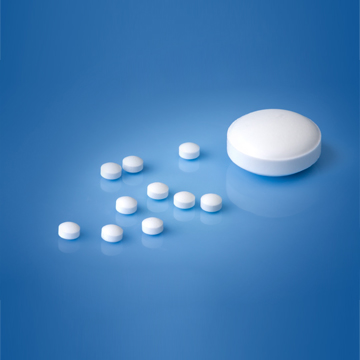Combining excellent taste and functionality – galenIQ™

BENEO’s sweet pharmaceutical excipient — galenIQ™ — improves both minitablet production and patient compliance
Tablets are still the most widely used drug delivery system. However, some patient groups, including the elderly, people with dysphagia and children, may find it difficult to swallow conventional solid dosage forms because of their size and shape. Compliance is therefore a significant challenge. Although, in 2007, solutions and powders for suspension were the most popular oral formulations for children, multiparticulate drug delivery systems – such as minitablets – have now gained favor for a number of reasons.[1]
 Minitablets: formulations of the future
Minitablets: formulations of the future
Minitablets are easy to take as they have a diameter of between 1 and 4 mm. They enable exact dosing, can be coated both accurately and conveniently, and offer a high degree of dispersion in the gastrointestinal tract, thereby reducing the risk of high local drug concentrations.
Manufacturing minitablets requires a filler-binder with excellent flowability. The excipient should also enable the production of high-hardness tablets at low compression forces to avoid damaging the multiple-tip punches used to make them. In addition, good taste and water solubility are important characteristics too, especially when it comes to orodispersible minitablets that are tailored for fast drug release. galenIQ™ 721, BENEO’s high quality, water-soluble filler-binder, meets all of these requirements.
Compliance and technological benefits
galenIQ™ is the pharmaceutical grade version of BENEO’s Isomalt, a disaccharide alcohol derived from beet sugar, which is the main reason why it has a taste profile that is very close to sucrose. This innovative excipient may reduce the bitterness of APIs and contributes to a pleasant taste and mouthfeel in the final pharmaceutical or nutraceutical product. In addition, galenIQ™ offers excellent flowability, great compressibility and ensures content uniformity. These functionalities enable high tablet hardness at a low compression force. Owing to its sweet taste and excellent technical properties, galenIQ™ is the excipient of choice for manufacturers of solid dosage forms who are looking to make the most of the growing minitablets trend.
Successfully tested in the field
Recently, scientists have confirmed that direct compression grade galenIQ™ 721 is highly suitable for developing orodispersibe minitablets.[2] The study evaluated its potential to produce minitablets with respect to content uniformity, disintegration time, drug release, tensile strength and stability. Enalapril maleate served as the model API, because the therapeutic need of this drug for children is well known.[3] The researchers found that the disintegration times of the produced minitablets fulfilled the European Pharmacopoeia (180s) and even US FDA (30s) criteria, and that the dissolution profiles demonstrated immediate release of the drug. In addition, the orodispersible quality attributes were preserved during seven months of storage under ambient conditions.
A multifunctional range
Besides the agglomerated grade 721 for direct compression, the galenIQ™ product range comprises different versions that serve a broad variety of dosage forms. The filler-binder is available in a wide array of particle size distributions, morphologies and levels of solubility. This makes it a highly flexible excipient that can be used to formulate tablets, chewables, lozenges, effervescents, capsules and powder blends. All galenIQ™ grades are physically and chemically stable, non-hygroscopic and enhance the palatability of the final form.
For further information on galenIQ™ and minitablets, please watch our new video and check out our website
[1] An Updated Review Of Commercially Available Pediatric Oral Formulations Since 2007. Journal of Pharmaceutical Sciences 108 (April 2019), 1335-1365.
[2] Ard Lura et al.: Orodispersible Mini-tablets based on galenIQ™ 721. Institute of Pharmaceutics and Biopharmaceutics, Heinrich Heine University, Düsseldorf, Germany.
[3] Peter Kleinebudde, Pharmazeutische Pellets durch Extrudieren/Sphäronisieren: Herstellung, Eigenschaften, Modifizierung, Habilitation thesis, University of Kiel (1997).

